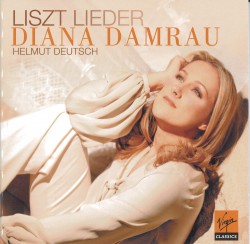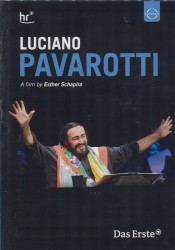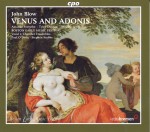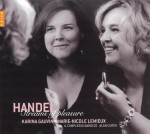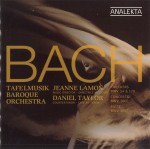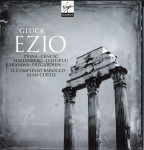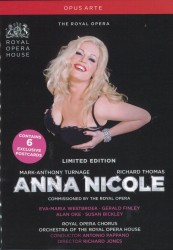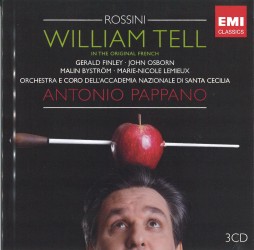A Bridge of Dreams - A Cappella Music from the Pacific Rim - Ars Nova Copenhagen; Paul Hillier
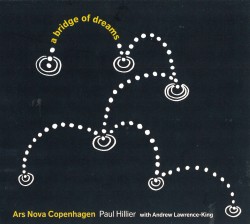 A Bridge of Dreams - A Cappella Music from the Pacific Rim
A Bridge of Dreams - A Cappella Music from the Pacific Rim
Ars Nova Copenhagen; Paul Hillier
Dacapo 6.220597
Curious and delightfully captivating, this recording by the 14-voice Ars Nova Copenhagen ensemble under Paul Hillier presents a programme by (mostly Western) composers of music from the Pacific Rim.
Hillier’s credentials rest largely on his years of work in early music. His ability to cope with challenging contemporary repertoire, however, leaves no doubt about his extraordinary musicianship. While his programme for this recording is well balanced – including works by New Zealander Jack Body, Australians Anne Boyd and Ross Edwards, American Lou Harrison and Lui Sola, a multi-disciplinary artist from China – two works really deserve special mention.
Harrison’s Mass for St. Cecilia’s Day is tinged strongly by his attraction to Chinese and Indonesian music. The Latin text, sung in an obvious plainsong style, is frequently embellished by modal phrasings and ornaments from the Oriental world. The effect of this fusion is surprisingly compelling. One is never quite sure if what’s being sung is ancient or modern. Harrison’s skilful writing moves effortlessly through an in-between realm where he creates something new from something ancient.
Edwards’ Sacred Kingfisher Psalms also combine otherwise unrelated material into a remarkable composition. Using portions of Latin psalm texts, Edwards pays homage to the aboriginal spirit of his homeland by weaving the native names of indigenous birds into his Latin text. The chanting evokes ancient aboriginal rituals as well medieval European polyphonies.
Harrison’s and Edwards’ works appear to practice some kind of musical alchemy and do so with the skilful formulation of Ars Nova’s choral ingredient.


